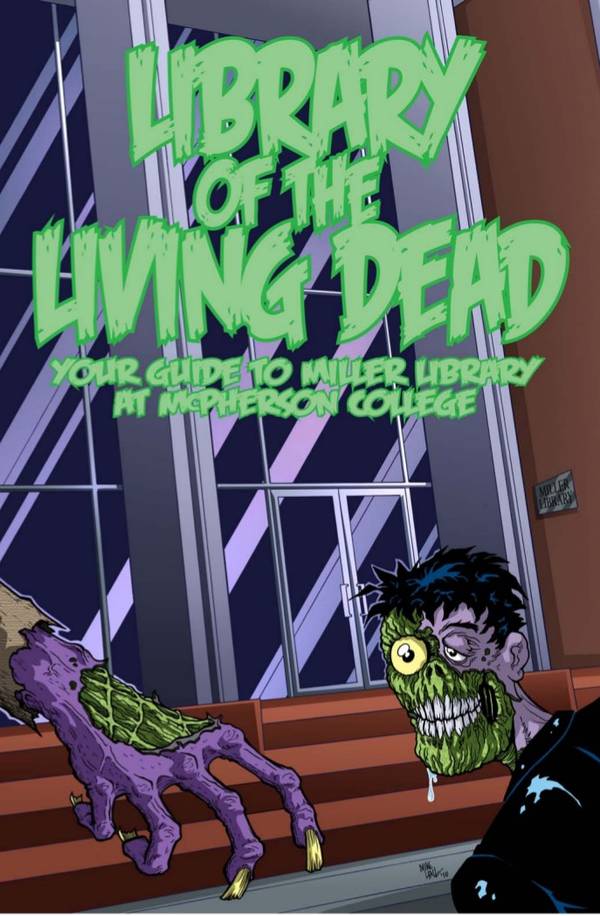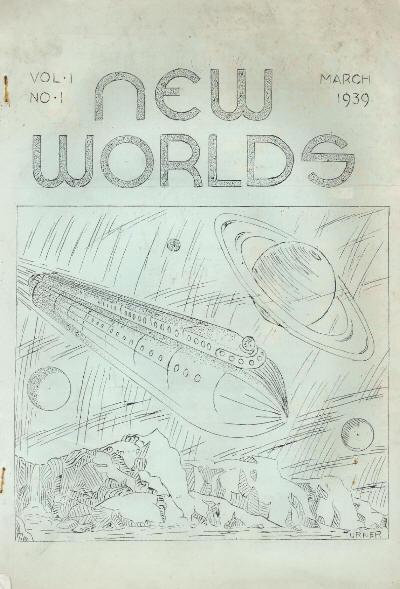The Latest from Boing Boing |  |
- Models and the scientific method
- Zombie comic tutorial for using the college library
- XKCD's Tetris Heaven for real
- Texas governor proclaims three days of "Prayer for Rain"
- All Your Base are Belong to Us: how 50 years of videogames conquered pop culture
- Dan Clowes' Mister Wonderful graphic novel
- Finum Goldton Filters
- Government wants answers from Apple on location tracking
- Amazon server outage disables portions of Reddit, NYT, ProPublica sites
- Reactors, residents and risk: analysis of populations near nuke plants around the world
- Susannah Breslin: How your journalism sausage is made
- Protestors interrupt Obama fundraiser to sing for Bradley Manning
- Subscription plan rumored for Chrome notebooks
- Glasses in Japan
- SPECIAL FEATURE: The Pale King
- FBI: pipe bomb in Colorado was "domestic terrorism"
- Doctor Who actress Elisabeth Sladen (Sarah Jane Smith) dies
- Frank Frazetta was a paperback book cover model
- DOG vs. BUBBLES
- Vintage American diner in a Welsh shed
- EFF: Google must explain why they nuked the Grooveshark app
- MPAA: "democratizing culture is not in our interest"
- New Worlds magazine returns
- Infrared digital camera
- Firms battle over "Wines for Mommy" trademark
- Dropbox's new security policy implies that they lied about privacy from the start
- Why the weather is wacky
- Nerds in the kitchen, making macarons
- Plant medicine is bunk, says medicinal plant expert
- A year's worth of coverage of the BP Deepwater Horizon disaster
| Models and the scientific method Posted: 21 Apr 2011 10:39 PM PDT Saul Griffith's Make column, Model It, or Make It Modelable, is a really smart look at the way that models fit into the scientific method, and how computer models allow for rigorous peer-review of theories about how the world and the machines we build might work: Model It, or Make It Modelable (Image: Printable Clock, Parametric Proof of Concept by syvwlch, Syvwich/Thingiverse |
| Zombie comic tutorial for using the college library Posted: 22 Apr 2011 02:57 AM PDT  Lisov sez, "I love this! The McPherson College Library has made a tutorial comic using zombies! It certainly got my attention. They should do the same for drivers ed with maybe some live roleplaying. I'd be a brilliant driver if I learned while being chased by zombies. In short - I think this really works! Miller Library FTW!" |
| Posted: 21 Apr 2011 10:31 PM PDT The XKCD strip Heaven depicted a Tetris version that would drop irregularly shaped pieces that were perfectly structured to fill all the voids in the tetrisbed. Gud magazine responded by implementing this in Flash: a Tetris version that drops these eminently satisfying tetroids from time to time. They feel goooooood. Heaven (via Super Punch) |
| Texas governor proclaims three days of "Prayer for Rain" Posted: 21 Apr 2011 09:39 PM PDT Gov. Rick Perry (R-TX) today issued a proclamation calling upon Texans to pray for rain from Friday to Sunday, April 24, in order to combat the state's "exceptional drought." WHEREAS, the state of Texas is in the midst of an exceptional drought, with some parts of the state receiving no significant rainfall for almost three months, matching rainfall deficit records dating back to the 1930s ... NOW, THEREFORE, I, RICK PERRY, Governor of Texas, under the authority vested in me by the Constitution and Statutes of the State of Texas, do hereby proclaim the three-day period from Friday, April 22, 2011, to Sunday, April 24, 2011, as Days of Prayer for Rain in the State of Texas. I urge Texans of all faiths and traditions to offer prayers on that day for the healing of our land, the rebuilding of our communities and the restoration of our normal way of life. |
| All Your Base are Belong to Us: how 50 years of videogames conquered pop culture Posted: 21 Apr 2011 03:59 PM PDT In All Your Base Are Belong to Us, Harold Goldberg's comprehensive, new history of videogames, the author details the humble origins of what would become a multibillion dollar company, Blizzard Studios. Just after graduating college, Allen Adham, Mike Morhaime and Frank Pearce got together to make games their way. They eventually hired Chris Metzen, who brought some tight, savvy storytelling to the company. But their early success was complicated by the ups and downs of making what would become the uber popular MMO, World of Warcraft. Here's an excerpt.
All Your Base Are Belong to Us Excerpted from All Your Base Are Belong to Us: How Fifty Years of Videogames Conquered Pop Culture Copyright @ 2011 by Harold Goldberg. Reprinted by Permission of Three Rivers Press, an imprint of the Crown Publishing Group, a division of Random House, Inc., New York. |
| Dan Clowes' Mister Wonderful graphic novel Posted: 21 Apr 2011 03:43 PM PDT  Daniel Clowes' comic books are often about misfits. Ghost World was about a couple of teenage girl outcasts. Pussey was about an arrogant, self-deceiving cartoonist. The more recent Wilson (reviewed here) was about a lonely, unemployed, self-loathing, passive-aggressive sad-sack who goes through life making himself and the people around him miserable. There's not a lot of action in a Clowes comic. His characters spend a lot of time thinking and talking about the poor decisions they've made that have caused them to have such miserable lives. You'd think these comics would be depressing to read. And truth be told, you'd be right. But it would be a mistake to pass them up, because they're also funny, poignant, and powerfully evocative. Mister Wonderful, Clowes' latest graphic novel doesn't veer from familiar territory. It's about an out-of-work, out-of-money, divorced middle aged man named Marshall. The story starts in a café. Marshall sits at a table by himself, waiting for a blind date to meet him. He reflects on his failed romantic and social life, becoming increasingly agitated that his date isn't showing up. He starts drinking beer. By the time she shows up (her name is Natalie; she was late because she went to the wrong cafe; he thinks she's beautiful) Marshall is plastered. He has to urinate but is afraid to leave her because he "Musn't give her the chance to escape." During the date, Marshall mentally torments himself about what to say, what he should and shouldn't disclose to Natalie, and how much he should stick to the truth. He immediately regrets almost everything he blurts out. His anxiety boils over when a homeless man enters the restaurant and walks up to their table and asks for a dollar. Mister Wonderful explodes at the homeless man, which alarms his date. Soon after this incident, Clowes interrupts the main story with a two-page scene of the conversation taking place between the married couple who set Marshall and Natalie up on the date. We learn that they think that Marshall and Natalie are psychologically damaged, loose cannons. The date ends with Marshall realizing the date was a flop, and he begins walking home filled with regret. But the story takes an unexpected turn, and the rest of the evening feels like a slightly less surreal version of the movie After Hours. As a storyteller and artist Clowes is at his masterful best here. He makes judicious and creative use of comic book devices: three dimensional words to symbolize emotional distress; a little floating man to represent Marshall's superego; text in word balloons running off the side of a panel or obscured by inner-thought boxes; vignettes drawn in cartoony style to depict imagined consequences; flashbacks tinted a rusty orange. It's a pleasure to closely study Clowes technical chops. He's been at this game for a long time, and keeps getting better at what he does. There may be a few living graphic novelists as talented as Clowes, but in my opinion no one tops him.
|
| Posted: 21 Apr 2011 02:36 PM PDT  I make at least five cups of tea daily. Some at home and some at work. Over the years I've learned to appreciate nice loose-leaf teas that brew best in a basket that gives them room to "breath." While I'd love to use a beautiful teapot, it's not always practical. The usual solution is these tiny mesh tea balls, but they don't allow the leaves to really expand. There are also tea tumblers with baskets, but I found most of their baskets tiny and hard to clean. Luckily, I stumbled upon these Finum Goldton Filters. They are perfect for making a single cup of wonderfully brewed tea in whatever mug or cup is around. They have ample room and the tea infuses really well through the fine gold chamber. It's really easy to just spoon the tea in, no wrangling with stray leaves like with a tea ball. I make at least five cups of tea daily. Some at home and some at work. Over the years I've learned to appreciate nice loose-leaf teas that brew best in a basket that gives them room to "breath." While I'd love to use a beautiful teapot, it's not always practical. The usual solution is these tiny mesh tea balls, but they don't allow the leaves to really expand. There are also tea tumblers with baskets, but I found most of their baskets tiny and hard to clean. Luckily, I stumbled upon these Finum Goldton Filters. They are perfect for making a single cup of wonderfully brewed tea in whatever mug or cup is around. They have ample room and the tea infuses really well through the fine gold chamber. It's really easy to just spoon the tea in, no wrangling with stray leaves like with a tea ball. Unlike traditional mesh, the gold walls are very easy to clean and I hardly ever have to pick stray leaves out. They also come with a cap that can allow a stronger brew as it keeps the temperature more constant. I recommend this simple Adobe Air app Tea-Timer to prevent over-steeping. After brewing the cap doubles as a stand for the filter, which keeps it from dripping all over the place. Another advantage of brewing a single cup at once is that I can serve guests any type of tea they want instead of sharing one single pot of tea. I originally got these for work, but I bought some for home and use mainly these instead of a tea pot. --Melissa McEwen Don't forget to comment over at Cool Tools. And remember to submit a tool! |
| Government wants answers from Apple on location tracking Posted: 21 Apr 2011 02:13 PM PDT Sen. Al Franken, (D-Minn) wrote a two-page open letter to Apple CEO Steve Jobs, asking nine questions about the news that iPhones and iPads running iOS 4 record and store users locations in unencrypted files. |
| Amazon server outage disables portions of Reddit, NYT, ProPublica sites Posted: 21 Apr 2011 01:59 PM PDT A problem with Amazon's cloud services today caused outages affecting portions of sites including Reddit, the New York Times, ProPublica, and others. |
| Reactors, residents and risk: analysis of populations near nuke plants around the world Posted: 21 Apr 2011 02:26 PM PDT "An analysis carried out by Nature and Columbia University, New York, shows that two-thirds of the world's 211 nuclear power plants have more people living within a 30-kilometre radius than the 172,000 people living within 30 kilometres of the Fukushima Daiichi plant, who have been forced or advised to leave. Some 21 plants have populations larger than 1 million within that radius, and six have populations larger than 3 million." (nature.com, map requires Google Maps plugin) |
| Susannah Breslin: How your journalism sausage is made Posted: 21 Apr 2011 01:49 PM PDT Former Boing Boing guestblogger Susannah Breslin is doing a series over at Forbes.com titled "How Your Journalism Sausage Gets Made," on how she does what she does as a journalist. I didn't go to journalism school, my comma usage is sometimes flawed, and I don't believe I've ever been a member of a journalism-related organization. I have been a journalist for over a decade, and, as I go about creating a piece of original reporting over the next few days, I'll be recording that process here. |
| Protestors interrupt Obama fundraiser to sing for Bradley Manning Posted: 21 Apr 2011 01:22 PM PDT  Supporters of WikiLeaks source suspect Bradley Manning crashed an elite private fundraiser for President Obama Thursday morning in San Francisco, and interrupted his remarks with a song. From Wired: As Obama was speaking at the $5,000-a-plate breakfast fundraiser, an unidentified woman at one of the tables (above) reportedly began humming and singing a modified version of the song "Where's Our Change?," before she removed her blazer and shirt to reveal a t-shirt with a picture of the young Army intelligence officer who is suspected of leaking a massive cache of classified and sensitive documents to the secret-spilling site WikiLeaks. As the rest of the group at the woman's table joined in with her song, they held up signs that read "Free Bradley Manning," according to MSNBC. A viral marketing/activism group calling itself the Fresh Juice Party organized the action, and promises to pay protesters various amounts of money if they video themselves singing the song in public forums and handing out "Fresh Juice Party Bucks." More at Wired.com, here's an item at the SF Chronicle, and see related item at MSNBC.com. Video below.
|
| Subscription plan rumored for Chrome notebooks Posted: 21 Apr 2011 01:25 PM PDT  Google's Chrome netbooks are in the wild, but they're not yet widely available. That might change soon, according to a report at Neowin. Instead of simply being sold at retail, however, it's rumored that Google will also offer them as part of an internet subscription service, priced at $10-$20 a month. (Photo: Gizmodo) Google's Chrome netbooks are in the wild, but they're not yet widely available. That might change soon, according to a report at Neowin. Instead of simply being sold at retail, however, it's rumored that Google will also offer them as part of an internet subscription service, priced at $10-$20 a month. (Photo: Gizmodo) |
| Posted: 21 Apr 2011 01:14 PM PDT |
| SPECIAL FEATURE: The Pale King Posted: 21 Apr 2011 06:55 PM PDT For the sake of convenience, let's call this a book review of David Foster Wallace's posthumous unfinished novel, The Pale King. Wallace didn't die a nice, easy-to-get death like cancer or plowed over by someone asleep at the wheel of a defunct school bus. He hanged himself after a protracted battle with depression. People go to books to learn things, and the thing they go to novels to learn is how to be in the world. So the natural question is what should or can we learn from a guy that ended up hanging himself? This is the existential question suicide lends to the work of a person's life. It's the first question, and no others can come before it. |
| FBI: pipe bomb in Colorado was "domestic terrorism" Posted: 21 Apr 2011 01:09 PM PDT A pipe bomb discovered in a Colorado shopping mall may have been the work of a "domestic terrorist," and may have been connected to the 12th anniversary of the shooting rampage at nearby Columbine High School, according to FBI investigators. Firefighters found the homemade bomb and two propane tanks near a food court in the shopping mall, after a small fire broke out Wednesday. CNN, Littleton Colorado Channel 9. |
| Doctor Who actress Elisabeth Sladen (Sarah Jane Smith) dies Posted: 21 Apr 2011 12:59 PM PDT Boing Boing reader Angus Dunican says, (BBC News via BB Submitterator) |
| Frank Frazetta was a paperback book cover model Posted: 21 Apr 2011 01:01 PM PDT  Thanks for blowing my mind today, Shane Glines -- the late great fantasy artist Frank Frazetta was a model for exploitation paperbacks!
|
| Posted: 21 Apr 2011 01:28 PM PDT |
| Vintage American diner in a Welsh shed Posted: 21 Apr 2011 11:44 AM PDT  Unclewilco sez, "Sheddie Paul Siudowski has created a shed in his garden in Neath, South Wales, UK - where the interior is themed on a 1950's American Diner. Paul is one of the many unique entrants to the Shed of the Year 2011 competition which closes 16th May 2011 and is open to the best sheds in the UK. Previous winners of Shed of the year - have been a shed turned into a Roman Temple, a Hexagional Pub shed, A cabin on stilts and last year a Pirate Shed." POP'S DINER, GARDEN (Thanks, Unclewilco!) |
| EFF: Google must explain why they nuked the Grooveshark app Posted: 20 Apr 2011 10:35 PM PDT From the Electronic Frontier Foundation's Julie Samuels, a good dressing-down for Google over its mysterious, lily-livered removal of the Grooveshark music app from the Android store. I agree entirely -- and this epitomises the reason I chose to use Android devices, not because I trust Google to do no wrong, but because the OS lets me install software that Google doesn't approve of. In other words, I'm more interested in how well it fails than how well it works. Google's Lack of Transparency and Openness in the Android Market Will Hurt More Than Just Grooveshark |
| MPAA: "democratizing culture is not in our interest" Posted: 20 Apr 2011 10:45 PM PDT The MPAA has been doing a full-court press in Brazil, a country where copyright infringement, Creative Commons, and poverty are all widespread. In a telling interview, he described the MPAA's differences with the Creative Commons movement: "They [Creative Commons supporters] don't always agree with what we advocate," Frazier responded. "And you are talking about democratizing culture, this is not in our interests. It really isn't my interest."MPAA: "Democratizing Culture Is Not In Our Interest" |
| Posted: 21 Apr 2011 10:38 AM PDT  New Worlds, the seminal science fiction magazine edited for many years by Michael Moorcock, is back. SF Signal reports: New Worlds, the seminal science fiction magazine edited for many years by Michael Moorcock, is back. SF Signal reports: The magazine will appear in both electronic and traditional print on paper formats and be backed up by an extensive website that will feature exclusive editorial features free to all interested readers. It is anticipated that the new incarnation of the magazine will debut in September/October 2011, initially on a quarterly publishing schedule.Warren Ellis writes that it is "the most groundbreaking sf magazine of the last half of the 20th Century, if not one of the most groundbreaking magazines of any kind in the way it reshaped fiction and captured invention in the culture at large." Pictured above is a sketch for the cover of issue 1, hosted by Phil Stephensen-Payne. |
| Posted: 21 Apr 2011 10:19 AM PDT  ThinkGeek has an infrared point-and-shoot digital camera |
| Firms battle over "Wines for Mommy" trademark Posted: 21 Apr 2011 09:35 AM PDT From Reuters: "Rival wine sellers targeting overworked mothers are fighting over use of the word "Mommy" on their wine labels, according to a lawsuit filed in San Francisco federal court. |
| Dropbox's new security policy implies that they lied about privacy from the start Posted: 20 Apr 2011 10:24 PM PDT Miguel de Icaza noticed that Dropbox's new security terms of service allows it to decrypt your stored files for law enforcement; but Dropbox has always claimed that it did not store the keys necessary to do this. This has been used as both a selling point ("we keep your files so safe, we can't access them") and an excuse ("don't ask us for help if you lose your crypto keys, we don't store them"), but it was, apparently, a lie. De Icaza worries that a company that lies about its crypto and security policy may not be trustworthy when it comes to files containing sensitive information: Dropbox Lack of Security (via JWZ) |
| Posted: 21 Apr 2011 09:47 AM PDT  Last week, I wore shorts. Yesterday, it snowed. Meanwhile, down in Texas, there are heat-induced wildfires. This morning, I really enjoyed the catharsis provided by this interesting look at the science of volatile Spring weather, written by my fellow Minneapolitan Emily Sohn. Sohn's take is refreshingly non-sensational. First, she points out, Spring is just a volatile season. The change from winter to summer, cold to warm, will do that. But this Spring has been different in some important ways—some natural, some man-made, and some that are just confusing.
I also really liked this quote from meteorologist Paul Douglas, "The weather is inherently wacky. Personally, I'm seeing an increase over time in the wackiness." Image: Some rights reserved by powazny |
| Nerds in the kitchen, making macarons Posted: 21 Apr 2011 09:11 AM PDT I'm not sure how I missed it last fall when it was originally published, but Not So Humble Pie's recipe and troubleshooting guide to French macaron-making is the perfect follow-up to her exhaustive Macarons 101 article. If you're in the mood for a cooking challenge this Easter, I must recommend reading them both. Hell, even if you have no intention of ever making macarons, these posts are a happy place of cooking experimentation and science geekery. |
| Plant medicine is bunk, says medicinal plant expert Posted: 21 Apr 2011 09:01 AM PDT The Irish Times has an interview with the delightful crotchety doctor who is the garden fellow at London's Royal College of Physicians. Basically, he manages the College's collection of plants that have been historically used for medicinal purposes. Ironically, the job has convinced him that most herbal medicine is complete bunk. And he is not shy about saying so.
Oakeley doesn't deny that some plants have been useful, with plant-based chemicals leading to the development of important medicines. And, sometimes, ancient people guessed right, using those plants to treat the very things the plant-derived prescriptions treat today. His argument is simply that you can't just trust the ancients' opinion on a plant's medicinal value without first proving that it is effective and safe. In most cases, he says, the traditionally-used plants don't turn out to be effective. And the ones that are effective aren't as 100% safe as they're made out to be. Via Tim Lloyd |
| A year's worth of coverage of the BP Deepwater Horizon disaster Posted: 21 Apr 2011 09:48 AM PDT One year ago, yesterday, the Deepwater Horizon oil rig exploded, triggering the worst oil spill in US history. Treehugger has a round-up of great journalism and blogging about the explosion and its aftermath. The list includes stories written 10 days after the initial explosion, to follow-up articles from this week. Great stuff! |
| You are subscribed to email updates from Boing Boing To stop receiving these emails, you may unsubscribe now. | Email delivery powered by Google |
| Google Inc., 20 West Kinzie, Chicago IL USA 60610 | |

 But here's the beautiful thing about modeling. Computational models are digital, and that makes them inherently shareable, independently verifiable, and easy to collaborate on and improve.
But here's the beautiful thing about modeling. Computational models are digital, and that makes them inherently shareable, independently verifiable, and easy to collaborate on and improve. 


 It's hard to not speculate about what happened. We can only assume that a complaint from the RIAA would be based in copyright. That Google would perform a copyright takedown without requiring a valid notice under the Digital Millennium Copyright Act is surprising to say the least -- especially given that Google just last week filed its reply brief in the Viacom v. YouTube appeal vigorously defending its policy of responding only to valid DMCA notices where copyright complaints are concerned. (Separately, we question whether there's a theory of copyright law under which Google would be liable in the first place, given that Google merely stores the code for another service provider's app -- code that we seriously doubt is itself infringing or otherwise illegal and which isn't even executable on the Android Market platform.)
It's hard to not speculate about what happened. We can only assume that a complaint from the RIAA would be based in copyright. That Google would perform a copyright takedown without requiring a valid notice under the Digital Millennium Copyright Act is surprising to say the least -- especially given that Google just last week filed its reply brief in the Viacom v. YouTube appeal vigorously defending its policy of responding only to valid DMCA notices where copyright complaints are concerned. (Separately, we question whether there's a theory of copyright law under which Google would be liable in the first place, given that Google merely stores the code for another service provider's app -- code that we seriously doubt is itself infringing or otherwise illegal and which isn't even executable on the Android Market platform.)  If companies with a very strict set of security policies and procedures like Google have had problems with employees that abused their privileges, one has to wonder what can happen at a startup like Dropbox where the security perimeter and the policies are likely going to be orders of magnitude laxer.
If companies with a very strict set of security policies and procedures like Google have had problems with employees that abused their privileges, one has to wonder what can happen at a startup like Dropbox where the security perimeter and the policies are likely going to be orders of magnitude laxer.
Tidak ada komentar:
Posting Komentar